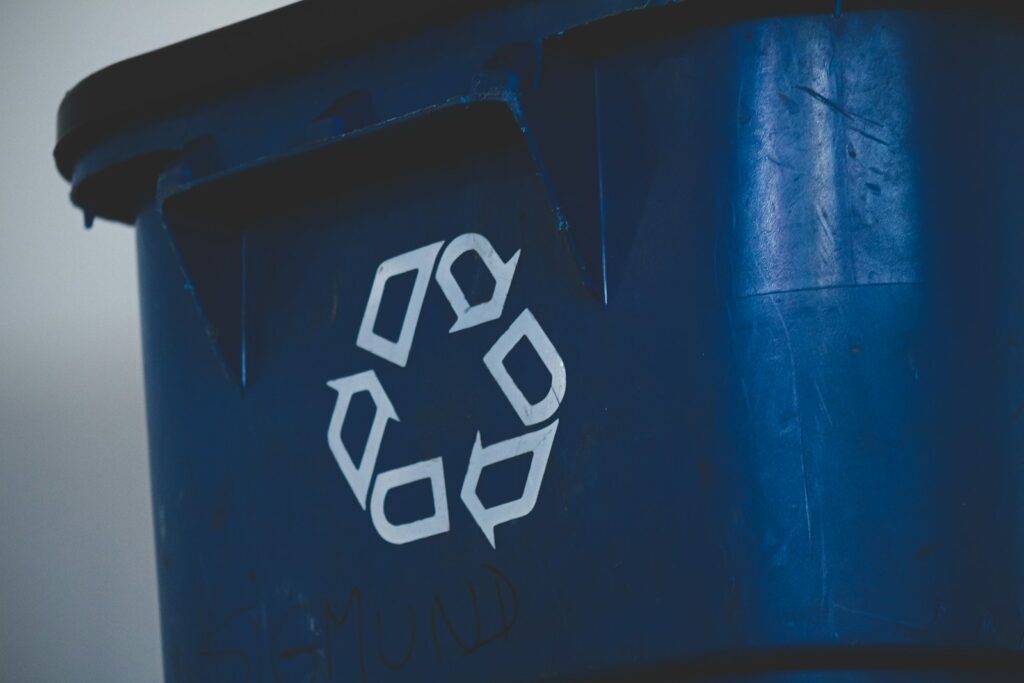A report published today (July 23) from the National Audit Office has accused the Government of not facing up to ‘underlying recycling issues.’ Bob Barltrop, Strategic Development Director at SWRnewstar puts forward the case for a more robust approach to recycling.
In the age of connectivity and collaboration, there are few challenges in life where segregation is considered part of the solution. But there’s one honourable exception: recycling.
How the world segregates, recycles and minimises its waste is central to environmental sustainability. It’s a collective responsibility – a paradox of segregating and uniting behind a common cause. Yet despite ongoing rhetoric, the UK is under-performing on the global stage. The recycling rate from UK households is flat-lining. The most recent figures place it at 45.2% – just a 0.6% increase from the prior year. Commentators fear that, without radical change, the UK will miss the EU’s target of 50% by 2020. For context, 99% of all household waste in Sweden is recycled. It’s incumbent on all of us to do better.
Examples of excellence are everywhere. Beyond Scandinavia, countries like South Korea, Taiwan, Slovenia and Belgium all rank above the UK. Germany leads the way, while Wales is another strong performer.
England, by contrast, is performing poorly, with the government refusing to commit to a revised EU target to recycle 65% of urban waste by 2035. Its 25-year environment plan does outline ambitious targets to minimise waste and there’s encouraging work being done around single-use plastics. But overall progress is slow. Behaviours must change if the UK is to meet its environmental responsibilities.
So, in an environment where segregation is all-important, what separates England from the world’s best-performing nations? What are they doing right and where can we improve?
Government policy
Robust government policies are a common denominator in leading nations. There’s a strong argument for legislation to support the 25-year plan – and good evidence of what’s possible with effective regulation. In Scotland, for example, 2016 regulations mandating the segregation of food waste for businesses that produce more than 5kg of food waste per week have led to increased compliance.
There are signs of government leadership; initiatives around bring-back schemes, disposable coffee cups and single-use plastics are attracting media coverage and driving public engagement. However, local variability in household recycling continues to thwart progress. Policies that establish more uniform practices would undoubtedly help.
Culture of collective responsibility
Policy is not the only answer. It’s easy to pass the environment off as someone else’s responsibility – but we must all play our part. In progressive countries, governments have established cultures of environmental responsibility where everyone recognises the contributions they make to the world’s wellbeing. It’s a long-haul journey; changing cultures and behaviours doesn’t happen overnight. But it must start somewhere.
It all boils down to behaviours. Our daily lives see us fluctuate between professional and consumer behaviours, but – unlike the waste we produce – we cannot separate the two: they’re simply human behaviours. Our daily routines journey through multiple touchpoints with recycling considerations; what we do with our food waste at breakfast; the coffee at the station; the waste we produce at work; our purchases at the supermarket; the groceries that rot in the fridge or the Bag for Life we leave in the car. From baby care to pet care and everything in-between, how we dispose of waste matters hugely. Each touchpoint relates to common practices that, one way or another, impact the planet. Our challenge is to acknowledge and change bad behaviours at home and at work.
We’re seeing green shoots of progress; supermarkets have redesigned their plastic bag policies and are turning their attentions to packaging, McDonald’s is switching to paper straws whilst Sainsbury’s is scrapping BOGOFs to curb food waste. But how can we, as individuals, make our own contribution? There are three – related – areas where behaviours must change:
#1. End landfill culture
The culture of putting our rubbish into holes in the ground must end. In the top-performing countries, landfill – whilst still necessary – doesn’t feature prominently. The UK must move away from its reliance on landfill – and we have a role to play in achieving it. Although responsibility for collecting our waste is delegated to third parties, the destination of that waste is heavily dependent on how it’s been segregated. That’s our responsibility. When we get it wrong we pay a high price – either through the damage we do to the earth, or in the waste management costs that determine our council taxes.
#2. Segregation
Segregating waste is pivotal to efficient, high-value waste management services. Significant behavioural change is required. There are four degrees of separation:
Food
In the UK, 10m tonnes of food is wasted every year, a high percentage of which ends up in landfill. In Scotland, Wales and NI, such activity is banned. However, in England, it’s a common, costly behaviour. Since food waste contains high volumes of water, bags of it are naturally heavy. When it’s dumped into general waste, the municipal cost of collection is higher – inevitably leading to higher council taxes. This can be avoided with better segregation.
Paper & Cardboard
There are complexities around paper. Clean cardboard, newspapers and ‘untreated’ paper can safely be recycled. Coated paper – often glossy merchandising and unsolicited mail – should be disposed of separately. We need better education here.
Garden Waste
As with food, segregation of garden waste is essential due to its weight. The practice is well-understood.
Plastics
Variability in plastic types makes this a complex area. In January, China – historically a major destination for recycled waste – banned the import of 24 categories of solid waste including certain types of plastics, paper and textiles. This has put pressure on waste management services. Councils, who previously received rebates on waste streams like plastics, are no longer getting that income. They also face higher disposal costs. The full impact of the ban has yet to be realised but UK consumers will eventually feel the pain. Irrespective, the importance of segregating plastic cannot be underestimated.
#3. Minimise Waste
As costs increase and the damage to our planet continues, the most effective solution is to minimise waste. This requires us to look closely at our current practices – at home and at work – and reduce avoidable waste by buying more efficiently and segregating more effectively. The waste sector has been applauded for its pioneering approach to resource efficiency, but to drive meaningful change, these behaviours must permeate the wider UK culture.
There’s a growing belief that government intervention is essential to move beyond the 50% target. It will undoubtedly help. However, even without it, there’s much we can do at the corporate and individual level to both reduce waste and manage it more efficiently. The behaviours we adopt at home, we take with us into the workplace. Progress is indeed a collective responsibility.
We all have a part to play. Let’s unite – and segregate – together.
Bob Barltrop is Strategic Development Director at SWRnewstar
















